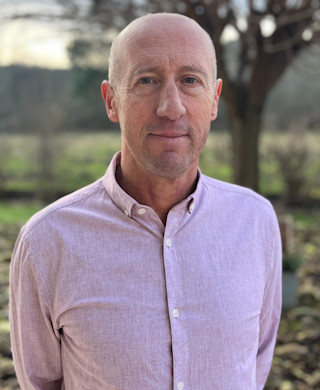Urgence gaz 0 800 028 800

Detecting and preventing undeclared work: Out in the field, working for everyone’s safety
Although it is much less common than it used to be, undeclared work is still a risk to the gas infrastructure. Carried out without the network operators’ knowledge, it can involve unintentional collision with a pipeline. The detection and prevention of undeclared work is therefore a major safety issue for Teréga. Philippe Courbin, an engineer responsible for coordination, authorisation and third party relations, is central to this work and tells us about the challenges.
What exactly are the risks arising from undeclared work? Is the general public sufficiency aware of them?
Philippe Courbin - Teréga has a network of more than 5000 km of underground gas pipelines, but it does not own the plots of land under which they pass. 15% of them are in public ownership, and 85% of them are privately owned. These private owners can therefore carry out all kinds of work near to our pipelines which has not been initiated by us: building a swimming pool, digging a private well, ditch clearing or drainage operations for farming and forestry, or even roadworks, network creation or the erection of signposts on public land. If such projects are not declared to Teréga by the people behind them, as the law requires, we cannot be there to supervise them. Accidental collision with a pipeline then becomes a possibility, with a real risk to the person doing the work and, possibly, any other person nearby.
In general, businesses and local authorities follow the law as they should. In addition, as professional organisations, they need to be in possession of authorisation to declare or carry out work. The situation is different for farmers and private individuals: they only do work on their own land, and they do not need to be authorised; and they are generally unaware of their obligation to declare their projects.
What is Teréga doing to reduce the risks associated with this undeclared work?
PC - Even though incidents have now become very rare, the sensitivity of our grid, which includes some very large diameter pipelines under high pressure, means that we cannot afford any mistakes. So there are many things we do, resulting in a very low accident rate. Teréga devotes considerable human, material and financial resources to the monitoring of declared projects and the prevention of undeclared work. We mobilise the equivalent of 30 full-time employees, all our pipelines built since 2006 are laid at least 20 cm further down than the minimum depth required by the regulations, and all our structures are indicated by posts and yellow markers bearing the emergency number. This alone cuts down the risk of accidental collision significantly. Detecting and preventing undeclared work is another part of our actions: aerial monitoring of our entire network, plus 40,000 emails sent every year to the owners of the land through which our gas pipelines pass, to remind them of the regulations and to ask them to contact us prior to any work.
Whenever we receive a declaration that is liable to impact our network, of which there are about 8000 annually, we automatically arrange a site meeting with the person carrying out the work, so that we can pinpoint the location of our structure and give specific safety instructions. They look at the nature of the work, the type of machinery being used and the proximity to Teréga’s pipeline. If necessary we stay on site to monitor the most delicate stages of the work directly above our structures, and we will come back as often as necessary if the project is of long duration. And all free of charge!
How to you act if you discover any undeclared work?
PC - First of all, we make the person responsible aware of the seriousness of the situation, on the ground. If it is a business, we also send a letter to its HSE (Health, Safety, Environment) director, and copy it to the DREAL (Regional Directorate for Environment, Development and Housing) for the most dangerous work. If there is a repeat offence, our actions may go so far as to submit a legal complaint. But prevention, through our presence on the ground and the annual awareness-raising emails we have been sending directly to landowners for seven years now, remains the most effective action: more and more individuals and farmers are contacting us, sometimes even to tell us about work on a plot that is not actually theirs!
The figures prove that our action is bearing fruit: year on year, we monitor our network more, and more effectively, and so we are discovering half as much undeclared work as we were ten years ago. Over the past year we have identified 70 such cases, which is less than 1% of all declared projects, and we have seen no actual accidents. So this is a positive trend, and it gives us the encouragement we need to continue our efforts.
Our expert: biography
Philippe Courbin is a coordination, authorisation and third party relations engineer at Teréga. His mission: to define and ensure the implementation of safety instructions, in accordance with current regulations, when work is done close to gas structures. He also represents Teréga on a number of regional or national bodies working, under the aegis of DREALs or the Energy Transition Ministry, to seek out and promote best practices for preventing damage to networks.







